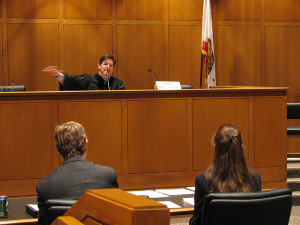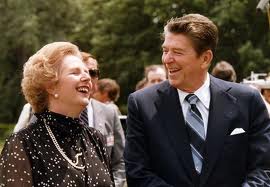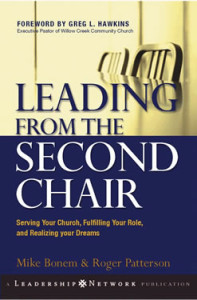 There has been much that has been said recently in the area of “Leading from the Second Chair”. Although I have not yet read Bonem and Patterson’s book by that name, I have seen a lot of that type of leadership in my own life and in those who I admire greatly.
There has been much that has been said recently in the area of “Leading from the Second Chair”. Although I have not yet read Bonem and Patterson’s book by that name, I have seen a lot of that type of leadership in my own life and in those who I admire greatly.
In fact, from a political perspective, one of the political leaders that I admire the most is Sen. Howard Baker of Tennessee. His was the very first Presidential campaign that I worked on was as a volunteer. Unfortunately I was a part of his unsuccessful attempt to become President in 1979. I admire Sen. Baker on multiple levels. Others admired him as well. Known in Washington, D.C. as the “Great Conciliator”, Baker is often regarded as one of the most successful senators in terms of brokering compromises, enacting legislation, and maintaining civility across the aisle. A story is sometimes told of a reporter telling a senior Democratic senator that privately, a plurality of his Democratic colleagues would vote for Baker for President of the United States. Unfortunately, not enough Americans apparently shared that sentiment.
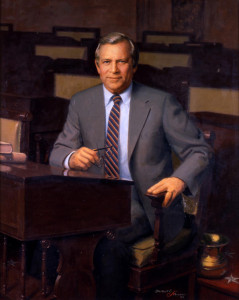 But the times during his career that I admired him the most were his days as White House Chief of Staff for Ronald Reagan, the man who defeated him early in the primary season and caused him to drop out after the Iowa Caucuses and the New Hampshire Primary.
But the times during his career that I admired him the most were his days as White House Chief of Staff for Ronald Reagan, the man who defeated him early in the primary season and caused him to drop out after the Iowa Caucuses and the New Hampshire Primary.
Baker did not seek re-election in 1984. However, as a testament to Baker’s skill as a negotiator and honest and amiable broker, Reagan tapped him to serve as Chief of Staff during part of Reagan’s second term (1987–1988). Many saw this as a move by Reagan to mend relations with the Senate, which had deteriorated somewhat under the previous chief of staff, Donald Regan. (Baker had complained publicly and privately that Don Regan had become a too-powerful “Prime Minister” inside an increasingly complex imperial presidency.) It is interesting to note that in accepting this appointment, Baker chose to skip another bid for the White House in 1988. Who knows if he would have been successful? I, I for one would have loved to have seen him elected in 1988 over the alternative that year.
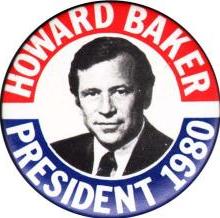 So what is the leadership principle that I admire in Sen. Baker? Well, I think it is for these two reasons. One is that he understood the power and responsibility to still lead even though you are not “The” one. He had ambitions to be “The” one. But ambition, skill, and aptitude did not translate into the Oval Office for Sen. Baker. So, he withdrew for the sake of the overall mission of his party and supported the ultimate candidate who went on to become President. He waited patiently for the second term of Ronald Reagan and began to make his own plans for another run for the White House. But “Duty” called and
So what is the leadership principle that I admire in Sen. Baker? Well, I think it is for these two reasons. One is that he understood the power and responsibility to still lead even though you are not “The” one. He had ambitions to be “The” one. But ambition, skill, and aptitude did not translate into the Oval Office for Sen. Baker. So, he withdrew for the sake of the overall mission of his party and supported the ultimate candidate who went on to become President. He waited patiently for the second term of Ronald Reagan and began to make his own plans for another run for the White House. But “Duty” called and
Click here to read the rest of the article »




